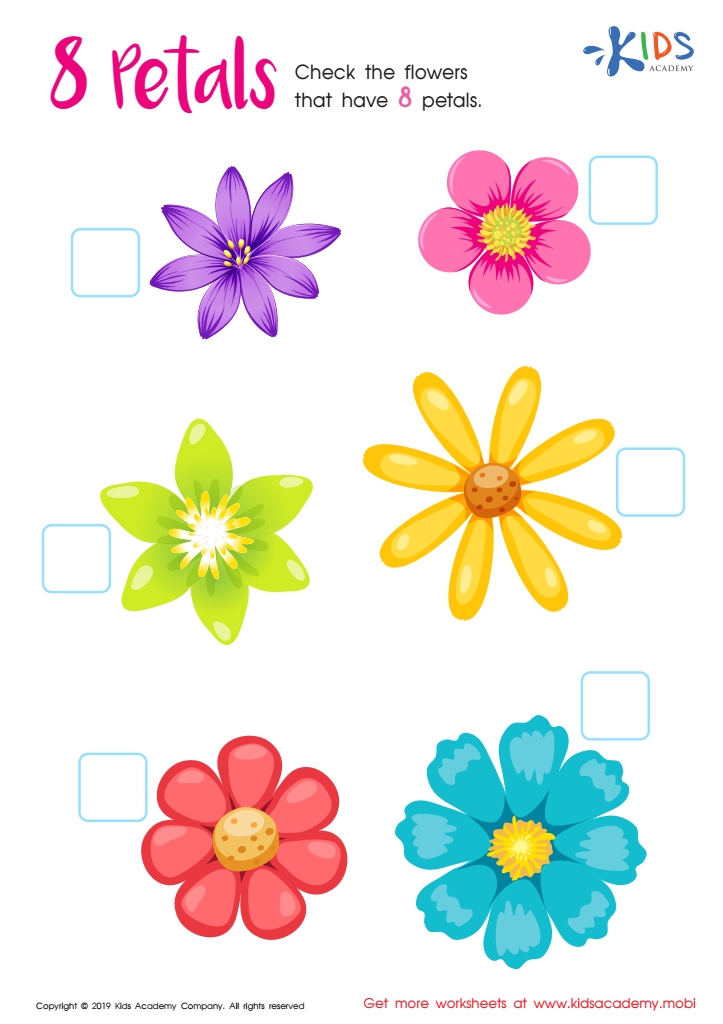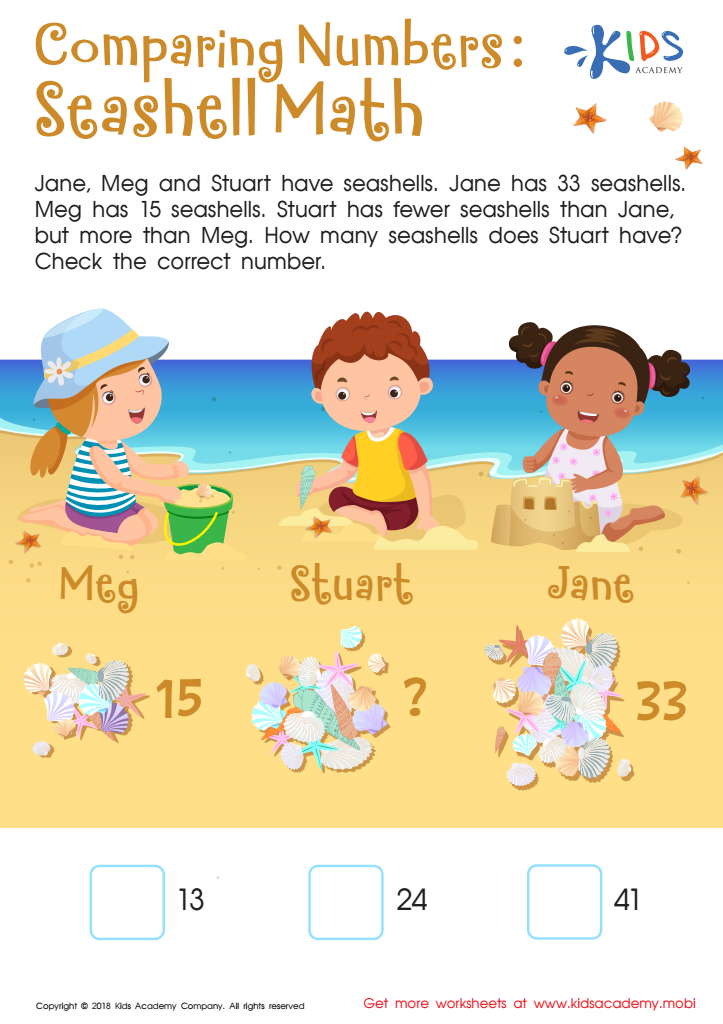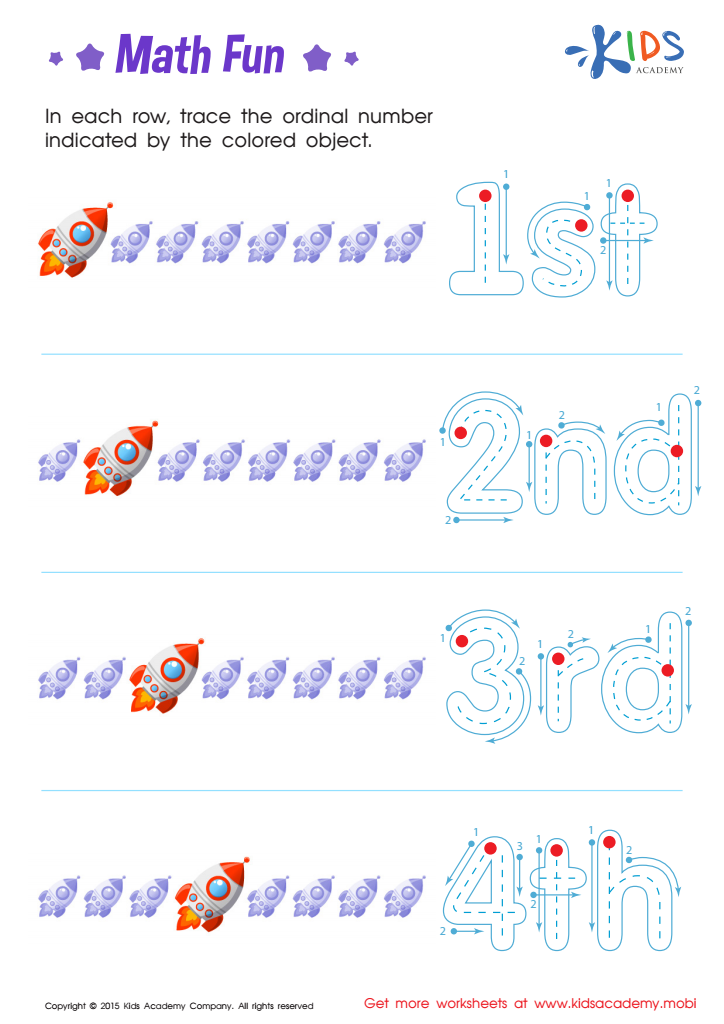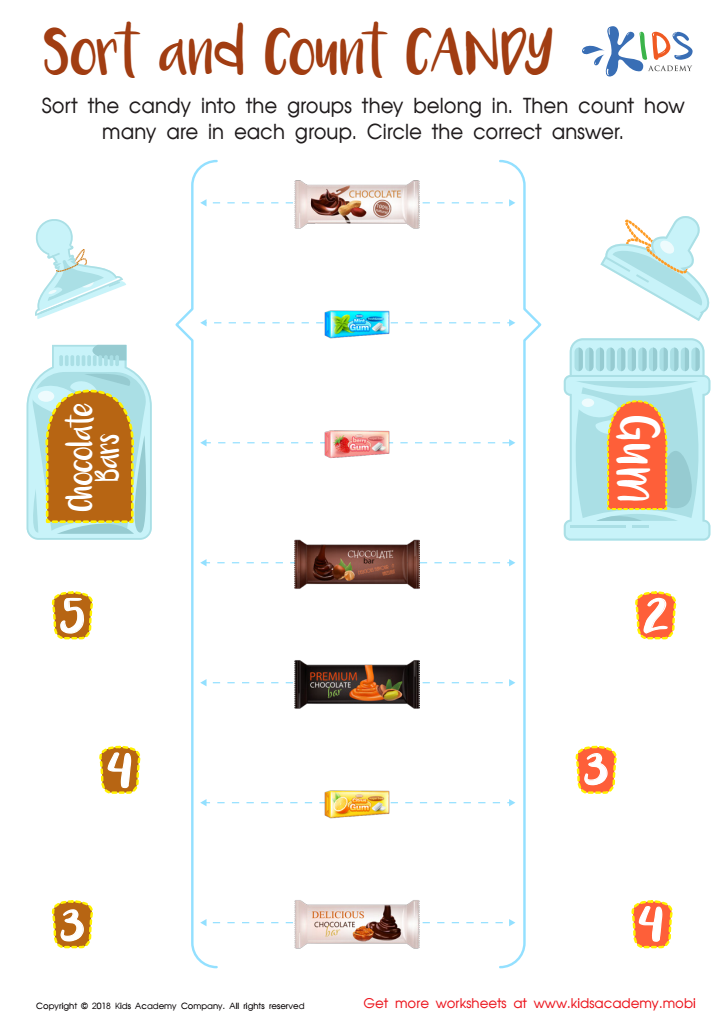Color recognition Normal Numbers Worksheets for Ages 6-8
4 filtered results
-
From - To
Discover our engaging Color Recognition Normal Numbers Worksheets designed specifically for children aged 6 to 8. Perfect for early learners, these worksheets combine math and art to enhance color awareness while teaching fundamental number skills. Each activity encourages students to identify and associate colors with numbers, promoting visual recognition and cognitive development. These printable resources are ideal for classrooms or home learning, making math fun and interactive. Foster a love for learning as kids color their way through numbers, reinforcing both their counting skills and artistic expression. Start your child’s educational journey with our captivating, color-rich worksheets today!


8 Petals Worksheet


Seashell Collectors Worksheet


Ordinal Numbers: Math Fun Worksheet


Sort and Count Candy Worksheet
Color recognition and understanding normal numbers are fundamental skills for children aged 6-8, significantly impacting their cognitive and social development. At this age, children are rapidly developing their ability to categorize, compare, and make sense of the world around them. Color recognition enhances their observational skills and is essential for activities like reading, arts and crafts, and everyday experiences, where colors help differentiate and organize information.
Similarly, grasping normal numbers, which includes basic counting and number recognition, lays the groundwork for more complex mathematical concepts. Mastery of these skills not only boosts confidence but also fosters a positive attitude towards learning math, which can influence their academic journey.
Parents and teachers play a crucial role in nurturing these skills through engaging activities such as games, puzzles, and creative projects that incorporate color and numbers. Such interactions promote critical thinking and problem-solving abilities, essential for future learning. Moreover, these early experiences with colors and numbers build a foundation for literacy and numeracy, vital for academic success. Monitoring a child’s progress in these areas allows early intervention if any challenges arise, supporting lifelong learning and confidence in their abilities.
 Assign to My Students
Assign to My Students





















